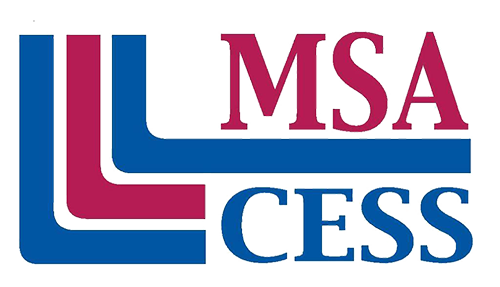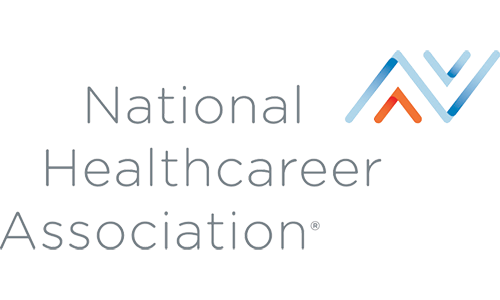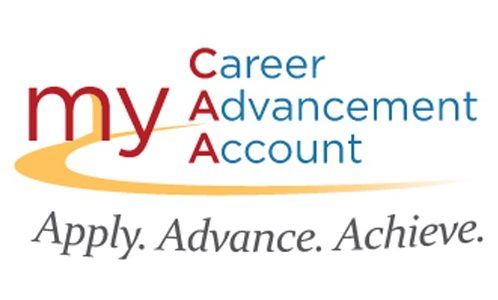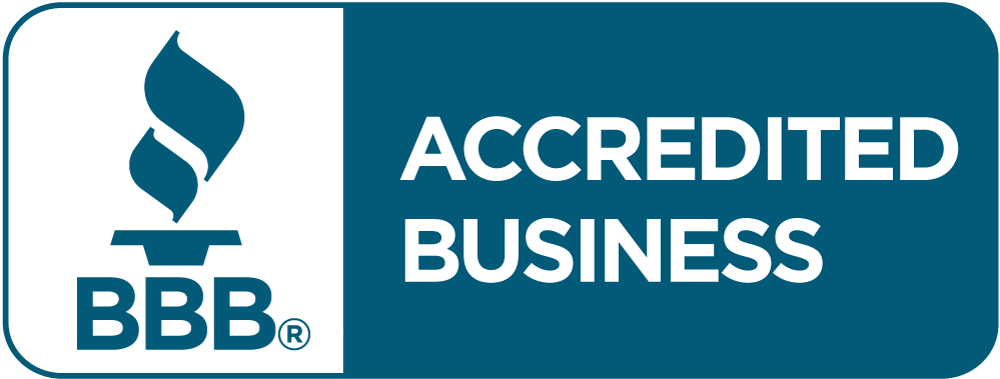What Medical Training Programs Can I Take in NJ?
New Jersey offers a variety of medical training programs and educational institutions where you can pursue an in-demand career in the healthcare field. The specific programs available may vary by location and institution, but here are some common types of medical training programs you can consider:
- Allied Health Programs: New Jersey offers a wide range of allied health programs, including medical assisting, radiologic technology, physical therapy assistant, and more. These programs are often available at technical schools.
- Dental Programs: Programs are available for aspiring Dental Assistants and other dental professionals.
- Medical Laboratory Assistant Programs: These programs train students to become laboratory professionals who work alongside doctors and other healthcare providers to perform diagnostic tests.
- Physical Therapy and Occupational Therapy Programs: New Jersey has several schools offering programs for aspiring physical therapists and occupational therapists.
- Radiologic Technology Programs: These programs teach students how to operate imaging equipment like X-ray machines and MRI scanners.
- Medical Coding and Billing Programs: You can also find programs that focus on medical coding and billing, which are essential for healthcare administration and insurance purposes.
At ACI Medical & Dental School, we offer the following three primary medical training programs:
- Medical Assistant Program with Phlebotomy, EKG, and Patient Care Technician
- Dental Assistant Program with Dental Radiology
- Medical & Dental Administrative Assistant Program with Electronic Health Records, Billing & Coding
What Is The Job Outlook for Healthcare Careers?
According to the National Healthcareer Association (NHA), jobs for allied health professionals in the US are growing at 13%, which is much faster than the average of 2.8% across all industries. The US Bureau of Labor Statistics is also predicting a strong growth rate for healthcare jobs by 2032, specifically:
- Medical Assistants: 14% Job Growth
- Medical Records Specialists: 8% Job Growth
- Phlebotomists: 8% Job Growth
- Dental Assistants: 7% Job Growth
- Medical / Dental Administrative Assistants: 7% Job Growth
What Medical Training Certifications Are Available In NJ?
There are several institutions that provide certifications for medical training in New Jersey, with NHA certification standing out as one of the most recognized and respected in the industry. At ACI Medical & Dental School, we offer the following NHA certifications in our programs:
- Certified Clinical Medical Assistant (CCMA)
- Phlebotomy Certification (CPT)
- Certified EKG Technician (CET)
- Certified Patient Care Technician (CPCT/A)
- Certified Medical Administrative Assistant (CMAA)
- Certified Electronic Records Specialist (CEHRS)
- Certified Billing and Coding Specialist (CBCS)
Is Financial Aid Available For Medical Training Programs?
Many technical schools will have some form of financial aid opportunities available for students. These will depend on the institution. At ACI Medical & Dental School, we have the following financial aid programs available for eligible programs:
- Federal Student Aid (FAFSA)
- VA approved benefits
- Pell Grants
- Financing plans
How Long Is Medical Assistant School In NJ?
Compared to traditional college, Medical Assistants and other allied healthcare careers typically require a much shorter training period. Most programs can be completed in less than a year, making it a relatively quick path to entering the workforce. At our school, you can get certified to become a Medical Assistant in less than four months!
What Are The Duties Of Medical Assistants?
A Medical Assistant plays a vital role in healthcare by performing a range of duties, both clinical and administrative, including but not limited to:
- Assisting healthcare providers during patient examinations and procedures.
- Recording patients’ vital signs.
- Maintaining Electronic Health Records (EHR.)
- Sterilizing medical instruments.
- Conducting clinical tasks such as EKGs and phlebotomy.
- Upholding medical ethics procedures such as HIPAA regulations.
- Handling administrative tasks like scheduling appointments, billing, and answering phones.
Their responsibilities ensure smooth healthcare operations, patient care, and accurate record-keeping, making them essential team members in medical facilities.

What Is The Role of a Patient Care Technician?
A Patient Care Technician (PCT) is a healthcare professional who provides hands-on care and support to patients in various clinical settings. Their role encompasses a range of responsibilities, including:
- Assisting with activities of daily living (ADLs) such as bathing, dressing, and grooming.
- Monitoring and recording patients’ vital signs, including blood pressure, pulse, and temperature.
- Collecting and documenting patient information, medical histories, and symptoms.
- Administering basic medical treatments, including wound care and medication under supervision.
- Assisting with patient mobility, transfers, and positioning.
- Operating and maintaining medical equipment like EKG machines and blood glucose monitors.
- Providing emotional support and reassurance to patients and their families.
- Collaborating with healthcare professionals to ensure comprehensive patient care.
- Upholding infection control and safety protocols.
- Working in hospitals, long-term care facilities, and clinics to enhance patient well-being and comfort.
How Do I Become A PCT In NJ?
To become a certified Patient Care Technician (PCT) in New Jersey:
- Start with a high school diploma or GED.
- Enroll in an accredited PCT training program offered by a New Jersey technical school.
- Complete the program, which includes classroom and hands-on clinical training.
- Consider getting certified through organizations like NHA. While certification isn’t always mandatory, it’s greatly beneficial for job opportunities.
- Gain practical experience through a clinical internship.
- Apply for PCT positions at healthcare facilities, ensuring you have all required credentials and meet background check and immunization requirements.
- Stay updated with continuing education as PCT practices evolve, and follow any changes in state regulations.
What Does A Phlebotomist Do?
A phlebotomist is a healthcare professional responsible for drawing blood from patients for various medical purposes. Their key duties include:
- Collecting blood specimens from patients using venipuncture (inserting a needle into a vein) or skin puncture techniques.
- Ensuring the proper labeling and identification of collected blood samples.
- Safely and hygienically handling and disposing of used needles and blood collection supplies.
- Communicating with patients to ease anxiety and provide clear instructions.
- Verifying patients’ identities and medical records to prevent errors.
- Maintaining accurate records of blood collections.
- Collaborating with laboratory personnel to transport and deliver blood samples for testing.
- Adhering to safety and infection control protocols to prevent the spread of diseases.
- Often working in hospitals, clinics, laboratories, or blood donation centers to support healthcare diagnostics and treatments.
Do You Need Phlebotomy Certification In NJ?
In New Jersey, phlebotomy certification is not always mandatory to work as a phlebotomist, but many employers prefer certification for phlebotomy positions. Certification demonstrates your competence and dedication to the field, making you a more attractive candidate to potential employers. It can enhance your job prospects, increase your earning potential, and demonstrate your commitment to maintaining high standards of phlebotomy practice. It’s advisable to check with potential employers to understand their specific requirements before pursuing a career as a phlebotomist in New Jersey.
What Type Of Training Is Required For The Medical Field?
We provide hands-on training for a variety of careers in the medical field, including:
- Medical Assistant training encompasses a broad array of both clinical and administrative skills. They learn to take vital signs, draw blood, prepare patients for examinations, assist with minor procedures, and handle medical instruments and equipment. Administrative training includes managing medical records, scheduling appointments, and navigating electronic health record systems.
- Dental Assistants focus on dental procedures and patient care, learning about dental instruments, sterilization techniques, and chairside assistance during treatments. They also acquire administrative skills such as scheduling appointments, billing procedures, and maintaining patient records.
- Medical Administrative Assistants primarily undergo training in office procedures, including managing patient records, insurance billing, and coding. They learn about medical office software, appointment scheduling, and communication with patients and healthcare providers.
How Do I Become A Medical Assistant In New Jersey?
To become a Medical Assistant in New Jersey, you first need to complete a postsecondary education program in Medical Assisting from an accredited institution. These programs often result in certification. Many employers may prefer or require certification, such as the Certified Clinical Medical Assistant (CCMA) credential offered by the National Healthcare Association (NHA). In our program, you can qualify for Medical Assistant certification in as little as four months. After completing your education and any required certification, you can search for job openings in medical facilities such as hospitals, clinics, and physicians’ offices. It’s also essential to stay updated on licensure and certification requirements in New Jersey.
Is A CNA The Same As A Medical Assistant?
A Certified Nursing Assistant (CNA) is not the same as a Medical Assistant (MA). While both roles involve providing essential care to patients, they have distinct responsibilities and work settings.
- CNAs primarily work in institutional settings like nursing homes and hospitals, assisting patients with activities of daily living, taking vital signs, and providing direct care under the supervision of registered nurses or licensed practical nurses.
- On the other hand, Medical Assistants work in outpatient settings such as clinics, physician’s offices, or urgent care centers. They perform both clinical and administrative tasks, including taking patient histories, administering medications, assisting with examinations, and managing medical records.
Medical Assistants have a broader range of responsibilities and higher earning potential than CNAs.
How Much Does A Medical Assistant Make In New Jersey?
The average salary for a Medical Assistant in New Jersey varies depending on factors such as location, experience, certification, and employer. However, according to data from ZipRecruiter, the average annual wage for Medical Assistants in New Jersey is around $43,978. Keep in mind that this figure is an average, and actual salaries may differ based on specific circumstances. For example, Medical Assistants working in metropolitan areas or for specialized medical practices may earn higher salaries compared to those in rural areas or smaller clinics.
Do You Need A Certification To Be A Medical Assistant In NJ?
While New Jersey doesn’t legally require certification for Medical Assistants, many employers in the state do prefer or even require it. Certification showcases a level of knowledge and expertise that employers value, with 81% citing it as a top requirement, according to the NHA. Although not legally mandated, becoming certified can significantly enhance job prospects, potentially leading to higher salaries and greater job security.
What Are Three Benefits Of Being Certified As An MA?
Three benefits of being certified as a Medical Assistant (MA) include:
- Enhanced Job Opportunities: Certification demonstrates proficiency and dedication in the field, making certified MAs more competitive candidates for employment. Many employers prefer or require certification when hiring, thereby expanding job opportunities for certified MAs.
- Increased Salary Potential: Certified MAs often command higher salaries compared to their non-certified counterparts. Employers may offer higher wages to certified MAs as recognition of their advanced skills and qualifications.
- Professional Recognition and Job Security: Certification validates an MA’s expertise and commitment to the profession, leading to greater recognition within the healthcare industry. Certified MAs may enjoy greater job security and advancement opportunities due to their recognized competence and adherence to professional standards.
What Does EKG Stand For?
EKG stands for Electrocardiogram, which is a medical test that measures the electrical activity of the heart. It records the heart’s rhythm and can detect abnormalities such as irregular heartbeats, heart attacks, and other heart-related conditions. During an EKG, small electrodes are placed on the chest, arms, and legs, and these electrodes detect the electrical signals produced by the heart. The results are displayed on a graph, showing the timing and strength of the heart’s electrical signals. EKGs are commonly used in medical settings to diagnose and monitor heart health, helping healthcare providers assess cardiac function and detect potential issues. Our Medical Assistant program includes EKG Technician certification.
Learn more about Common Medical Abbreviations.
How Do I Prepare for a Medical Assistant Interview?
To prepare for a Medical Assistant interview:
- Start by researching the healthcare facility and familiarizing yourself with its services, values, and mission.
- Review common Medical Assistant interview questions and practice your responses, highlighting your relevant skills, experience, and certifications.
- Dress professionally and arrive early for the interview.
- Bring copies of your resume, certifications, and any other relevant documents.
- Prepare questions to ask the interviewer about the role, responsibilities, and work environment.
- Show enthusiasm, confidence, and a positive attitude during the interview.
- Emphasize your ability to work well in a team, handle patient interactions, and manage administrative tasks effectively.
How Long Is NHA Certification Good For?
The National Healthcareer Association (NHA) certification for various healthcare professions, including Medical Assistants, is typically valid for two years from the date of issuance. After this period, certified individuals need to renew their certification by meeting certain requirements, which may include completing continuing education credits, paying a renewal fee, and adhering to any other specified criteria set by the NHA. Renewing certification ensures that healthcare professionals stay updated with industry standards, maintain their knowledge and skills, and continue to meet the NHA’s standards for competence and professionalism in their respective roles.
Learn more: How Do I Renew My Medical Assistant Certification (NHA)?
Is a Medical Assistant The Same As a Home Health Aide?
No, a Medical Assistant and a Home Health Aide are not the same roles, although they both work in the healthcare field.
- A Medical Assistant typically works in medical clinics, hospitals, or other healthcare settings, assisting healthcare professionals with clinical and administrative tasks. They may perform duties such as taking patient vital signs, preparing exam rooms, assisting with medical procedures, and managing patient records.
- A Home Health Aide provides care and assistance to patients in their homes. They may help with activities of daily living, such as bathing, dressing, meal preparation, and medication reminders, under the supervision of a nurse or healthcare provider.
Learn more: Career Comparison: Medical Assistant vs Home Health Aide (HHA)
Where Can Medical Assistants Work?
Medical Assistants can work in a variety of healthcare settings, including:
- Hospitals: Both inpatient and outpatient departments, such as emergency rooms, clinics, and surgical units.
- Physician’s Offices: Primary care practices, specialty clinics, and medical centers.
- Nursing Homes and Assisted Living Facilities: Providing care to elderly or disabled patients.
- Outpatient Care Centers: Including rehabilitation centers, imaging centers, and dialysis clinics.
- Urgent Care Centers: Providing immediate medical care for non-life-threatening conditions.
- Medical Laboratories: Assisting with specimen collection, processing, and testing.
- Health Insurance Companies: In administrative roles such as claims processing and patient support.
- Schools and Universities: Providing healthcare services in educational settings.
- Physical Therapy: Assisting patients with injuries or disabilities and helping them achieve their rehabilitation goals.
- OB/GYN: Working alongside OB/GYN to provide quality healthcare to women.







